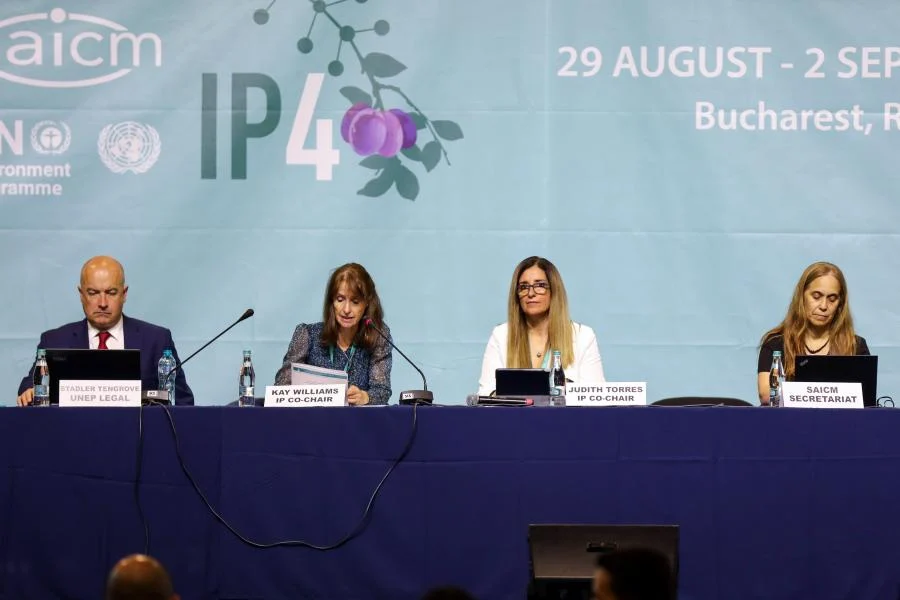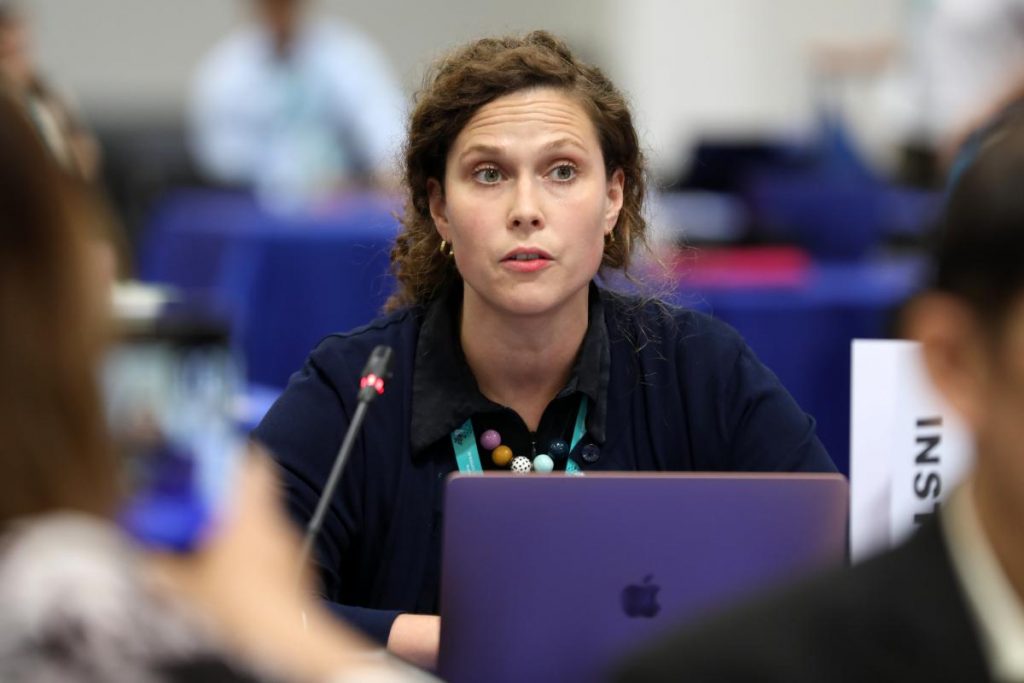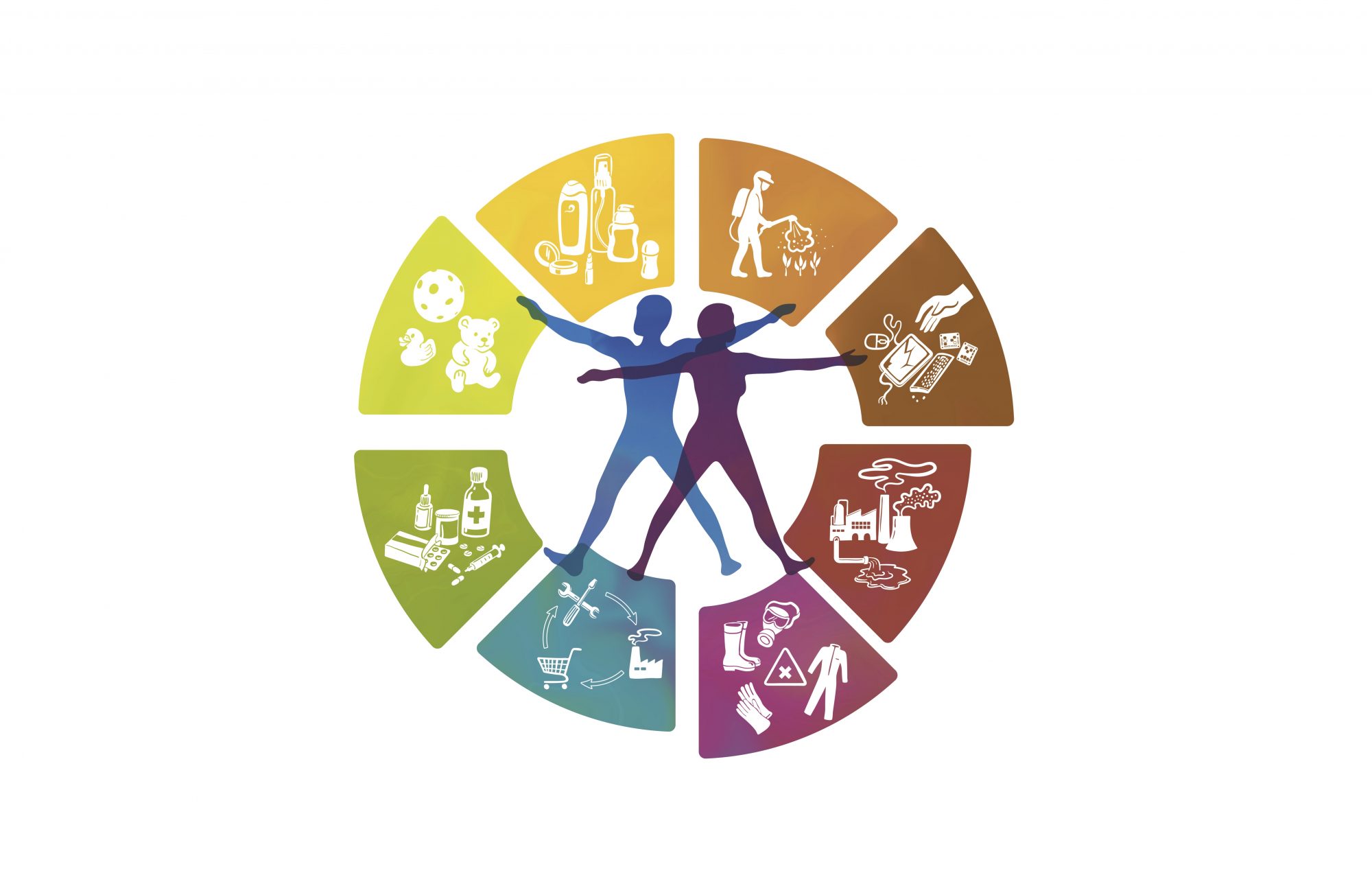
After two and a half years of not meeting in person, delegates got together again from 27th of August until 2nd of September in Bucharest, Romania, for a workshop, technical briefings and the 4th Meeting of the Intersession Process considering the Strategic Approach and the Sound Management of Chemicals and Waste Beyond 2020 (IP4). Originally, the meeting had been scheduled to take place from 23-27 March 2020 but had to be postponed due to the Covid-19 pandemic. More than 300 delegates attended, including representatives of governments, intergovernmental organizations, non-governmental organizations, and industry.
During the meeting, participants discussed the following key elements of potential recommendations to ICCM5 in three thematic groups:
- Thematic group 1: vision, scope, principles and approaches, strategic objectives, targets, and indicators
- Thematic group 2: institutional arrangements, linkages with the future Science-Policy Panel, issues of concern, and mechanisms to support implementation
- Thematic group 3: mechanisms to support capacity building and financial considerations
The resulting document “Co-Chairs Single Consolidated Text” was welcomed by participants in the closing plenary as “a significant achievement” (IISD 2022). Participants agreed to suspend IP4 and want to meet again early next year at IP4.2.
The MSP Institute participated in the meeting and, together with other NGOs working on women and gender issues (including, among others, CIEL, ForumUE, HejSupport, IPEN, PAN and WECF) advocated for the integration of gender in the resulting document. For this purpose, the MSP Institute coordinated an informal women and gender meeting and gave an opening statement on behalf of the group during the first plenary session. During the course of the week, the group developed joint text proposals and took an active role in thematic groups 1 and 2.

Together the group successfully advocated to include several text proposals on women and gender in the document:
- to highlight the aim “to protect human health including that of (…) women” in the introduction, in order to ensure that gender aspects are mentioned right in the beginning;
- to include several international agreements on gender and women’s rights into the principles and approaches of the future framework (especially with the support of Mexico), so that these international agreements are mentioned alongside others focusing on sustainable development, human rights, and others; and
- to include a text proposal to “Ensure gender equality, the recognition of women as agents of change and the inclusion of gender considerations in all relevant aspects of [the new instrument] through inter alia the development and implementation of a gender action plan“, in order to ensure that there are practical steps included in the work of SAICM and SAICM stakeholders after ICCM5.
As Ruth Spencer said on behalf of the group during the closing plenary, it was “good to see so many women as agents of change [at the conference] and to hear gender mentioned in many discussions. Nevertheless, women and non-binary people are still underrepresented in decision making positions in different fields. But recognizing their capacities and knowledge is urgently needed for meeting the 2030 sustainable development goals and to ensure that no one is left behind. Therefore, we need gender equality and gender mainstreaming instruments in the new framework (…) – otherwise, it remains outdated and stays behind all chemicals and waste conventions. The new framework / instrument could be a frontrunner in terms of gender equality by developing a gender action plan.”
Therefore, the text proposals on women and gender need to be discussed and gender considerations need to be integrated in the targets and indicators at IP4.2 and other possible activities between now and ICCM5, and agreed at ICCM5.
A lot of inspiring conversations with delegates, e.g. on our gender and chemicals road map for SAICM focal points, as well as being back at the table and advocating for a gender-just SAICM Beyond 2020 together with colleagues felt really good. It has energized us to continue the work and stay engaged in the process!

A final report and analysis of the meeting by IISD can be found at:
https://enb.iisd.org/saicm-intersessional-process-4-sound-management-chemicals-waste-beyond-2020-summary
